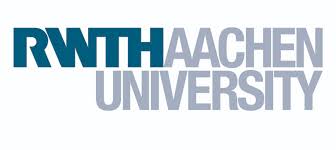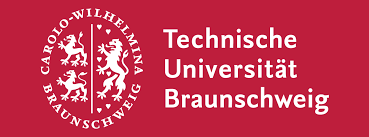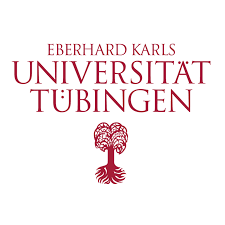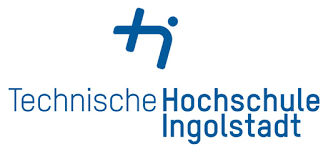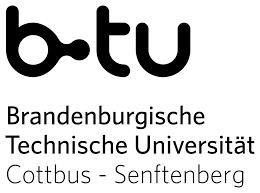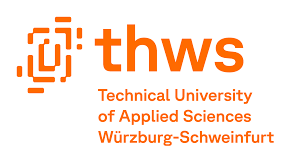Data Science Masters in Germany (Top Degree Programs in 2025)

Contents
Are you passionate about data science but unsure how to advance your career without breaking the bank? Pursuing a Master's in Data Science in Germany in English could be the perfect solution. With tuition-free education at many top universities, you can focus on your studies without financial stress. Germany's vibrant, multicultural environment and strong job market provide the ideal setting to grow personally and professionally.
Master's in Data Science in Germany: English-Taught Programs
Why Choose Germany for an MSc in Data Science?
Pursuing a Master's in Data Science in Germany is an excellent choice for international students seeking a top-tier education in a vibrant, innovative environment. Here are several compelling reasons why Germany is an ideal destination for this advanced degree:
Tuition-Free Education:
- Many public universities in Germany offer tuition-free education, even for international students. This significantly reduces the financial burden and allows students to focus more on their studies and career development.
High-Quality Education:
- German universities are renowned for their high academic standards and rigorous curricula, ensuring students receive a comprehensive and well-rounded education.
- Programs often emphasize theoretical foundations and practical applications, preparing students for real-world challenges.
Courses Taught in English:
- A wide range of Master's programs in Data Science in Germany are taught in English, making them accessible to international students.
- This diversity in language options attracts students from all over the world, fostering a multicultural academic environment.
If you're looking for more than just a single degree path and want to understand the full student journey in Germany—from admissions and scholarships to student life—check out our complete guide to studying in Germany.
Admission Requirements for Master's in Finance in Germany
University Degree
- Applicants must possess a relevant Bachelor's degree, typically in fields such as Computer Science, Mathematics, Statistics, Engineering, or a related discipline.
- Some universities may require specific coursework in subjects like programming, data structures, algorithms, or statistics as part of the undergraduate degree.
Language Requirements
- For programs taught in English, applicants must demonstrate proficiency through standardized tests such as the TOEFL (typically requiring a score of 90-100) or the IELTS (with a minimum score of 6.5 or 7.0).
- Some universities might also accept Cambridge English certificates or equivalent tests.
Work Experience
- While not always mandatory, some programs prefer or require applicants to have relevant work experience in data science or related fields.
- Practical experiences, such as internships, projects, or jobs involving data analysis, machine learning, or software development, can strengthen an application.
- Universities may look for evidence of specific skills, such as programming languages (e.g., Python, R), data visualization tools, or database management systems, which are highly relevant to data science.
Explore more study programs in Germany to find the one that best fits your goals and background.
Application Dates for Master's in Data Science
Understanding the application dates for a Master’s in Data Science in Germany is crucial to ensure a smooth application process. These dates can vary depending on the university and the semester in which you plan to start your studies. Here is a general overview of application timelines and important considerations:
General Application Deadlines
Winter Semester:
- The winter semester is the primary intake for most Master's programs in Germany.
- International students usually have application deadlines from mid-December to late March.
- Some universities might have earlier deadlines, so it is essential to check the specific dates for each institution.
Summer Semester:
- A smaller number of programs offer a secondary intake in the summer semester.
- Application deadlines for the summer semester generally fall between mid-May and late September.
- Fewer programs are available compared to the winter semester, so verifying if your chosen program is offered is important.
If you are still unsure of your university decision, we have compiled a list of the best universities in Germany for data science programs.
No Tuition Fee Data Science Degree in Germany
Many public universities in Germany offer the opportunity to study data science without tuition fees. Here are some affordable data science programs you can explore:
Int. Study Programs
Universities
Cities
Alternative Degree Options for Data Science Majors
If you're looking to broaden your career opportunities beyond data science, consider exploring related programs that leverage your data skills while providing versatility for diverse career paths. Here are some alternatives to consider:
Machine Learning
Business Analytics
Data Engineering
Artificial Intelligence
FAQs
What is the average salary of a Master's in Data Science in Germany?
The average salary for a professional with a Master's in Data Science in Germany typically ranges from €45,000 to €60,000 per year for entry-level positions. With a few years of experience, salaries can rise to between €60,000 and €80,000 annually. Location, company size, industry, and specific skills can influence these figures. Larger tech companies and those in major cities like Berlin or Munich may offer higher salaries. Additionally, specialized skills in machine learning, AI, and big data analytics can further enhance earning potential.
Is Germany good for a Master's in Data Science?
Yes, pursuing a Master's in Data Science in Germany is an excellent choice due to the country's high academic standards, strong research focus, and practical application opportunities. Many programs are taught in English, making them accessible to international students. Germany's robust economy creates high demand for data science professionals across various industries, and many public universities offer tuition-free education, reducing financial burdens. This combination makes Germany an attractive destination for advancing a career in data science.
Is MS in Data Science free in Germany?
Many public universities in Germany offer tuition-free education for both domestic and international students, including those pursuing a Master's in Data Science. However, while tuition is often free, students may still be responsible for paying semester fees, which typically range from €150 to €350 per semester. These fees usually cover administrative costs and public transportation tickets.
This might also be of interest to you

Summer Semester in Germany: Your Complete Guide for April 2026 Intake
Thinking about studying in Germany but missed the October deadline? The summer semester might be your perfect opportunity. While most international...

Why More Indian Students Are Choosing Germany Over the USA
In the last decade, Germany has become one of the fastest-growing study destinations for Indian students. While the USA once dominated the dreams of...

Top Courses for Indian Students in Germany vs USA (2025 Guide)
Studying abroad is a dream for many Indian students, but choosing the right country and course can be confusing. The United States and Germany are...

Germany vs USA: Work After Study Options for Indian Students (2025 Guide)
When you're choosing where to study abroad, it's not just about the university name or the country hype. For many Indian students, the big question...

5 Cheapest Countries to Study Abroad for Indian Students (2026 Guide)
Studying abroad doesn't have to drain ₹40-60 lakhs from your family's savings. Five countries offer world-class education for under ₹10 lakhs per...

Germany vs USA: Which Is Better for Indian Students in 2025?
Choosing where to study abroad is a big deal, especially for Indian students. You're not just picking a country; you're deciding to move far from...

Germany Welcomes Displaced Harvard Students: A New Academic Home
In a move that’s left thousands of students in shock, the U.S. government has revoked Harvard University’s certification to enroll international...
